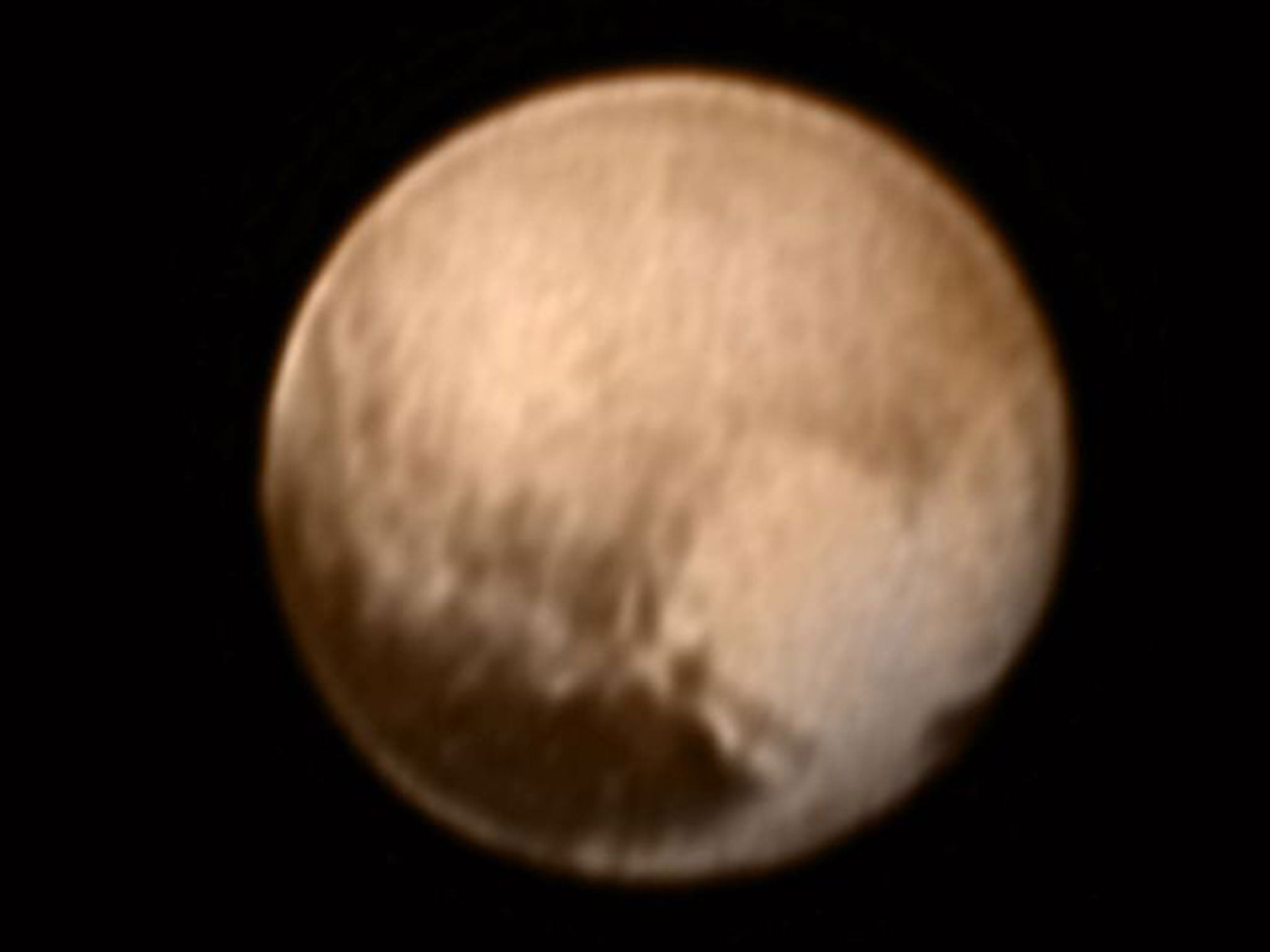New Horizons Pluto flyby: Nasa spacecraft 'phones home' after successful fly-past
Nasa tweeted: 'Nasa New Horizons 'phoned home' and is healthy!'

Your support helps us to tell the story
From reproductive rights to climate change to Big Tech, The Independent is on the ground when the story is developing. Whether it's investigating the financials of Elon Musk's pro-Trump PAC or producing our latest documentary, 'The A Word', which shines a light on the American women fighting for reproductive rights, we know how important it is to parse out the facts from the messaging.
At such a critical moment in US history, we need reporters on the ground. Your donation allows us to keep sending journalists to speak to both sides of the story.
The Independent is trusted by Americans across the entire political spectrum. And unlike many other quality news outlets, we choose not to lock Americans out of our reporting and analysis with paywalls. We believe quality journalism should be available to everyone, paid for by those who can afford it.
Your support makes all the difference.Nasa spacecraft New Horizons has "phoned home" from nearly three billion miles away after its successful fly-past of Pluto.
Physicist Professor Stephen Hawking and US president Barack Obama have hailed the scientists behind the probe, which completed the closest encounter with the dwarf planet ever achieved.
More data and detailed images of Pluto captured as the probe passed within 7,700 miles of the world's surface would be released later, the US space agency said.
Nasa tweeted: “Nasa New Horizons 'phoned home' and is healthy!”
The probe was due to make its closest approach at yesterday afternoon and, while the indications were the mission had been a success, the New Horizons team faced a tense wait until the probe contacted Earth again some 13 hours later.
Mr Obama said on Twitter: “Pluto just had its first visitor! Thanks Nasa - it's a great day for discovery and American leadership.”
Prof Hawking said on Facebook: “I would like to congratulate the New Horizons team and Nasa (National Aeronautics and Space Administration) for their historic fly-by of Pluto. The culmination of a decade long mission, I can't wait to see what new information the New Horizons spacecraft will reveal about our distant relative.”
Earlier Nasa posted a stunning new image on Instagram, taken by New Horizons from a distance of 476,000 miles.
It clearly shows the Pluto's surprising Mars-like reddish hue, and the enigmatic heart-shaped feature on its surface that has already become Pluto's calling card on the internet.
Picture from New Horizons shows dwarf planet
Scientists wait for craft to call home
Nasa’s New Horizons craft shows planet bigger than we thought
But the agency since tweeted: “You ain't seen nothing yet! Tomorrow, NASANewHorizons PlutoFlyby images will have even greater detail. Stay tuned!”
New Horizons has taken more than nine years to reach Pluto, carrying with it the ashes of the astronomer who discovered the remote icy object in 1930.
When the mission was launched in January 2006, the aim was to reach the outermost of the Sun's family of nine planets. Seven months into the probe's epic journey, international astronomers downgraded Pluto's status to “dwarf planet”.
But despite its small size - just over two-thirds the diameter of the Earth's moon - Pluto looks and behaves like a fully fledged planet, having an atmosphere and no less than five moons of its own.
Currently, Pluto is just under three billion miles from Earth, one of a number of distant “worldlets” in a region known as the Kuiper Belt.
It is so far away that its light takes more than four hours to reach the Earth, making communication with New Horizons an exercise in patience.
The 720 million-dollar (£461 million) probe is the size of a baby grand piano and, after launching on January 19 2006, it reached an Earth-relative velocity of 36,373mph, making it the fastest space vehicle in history.
Additional reporting by Press Association
Join our commenting forum
Join thought-provoking conversations, follow other Independent readers and see their replies
Comments